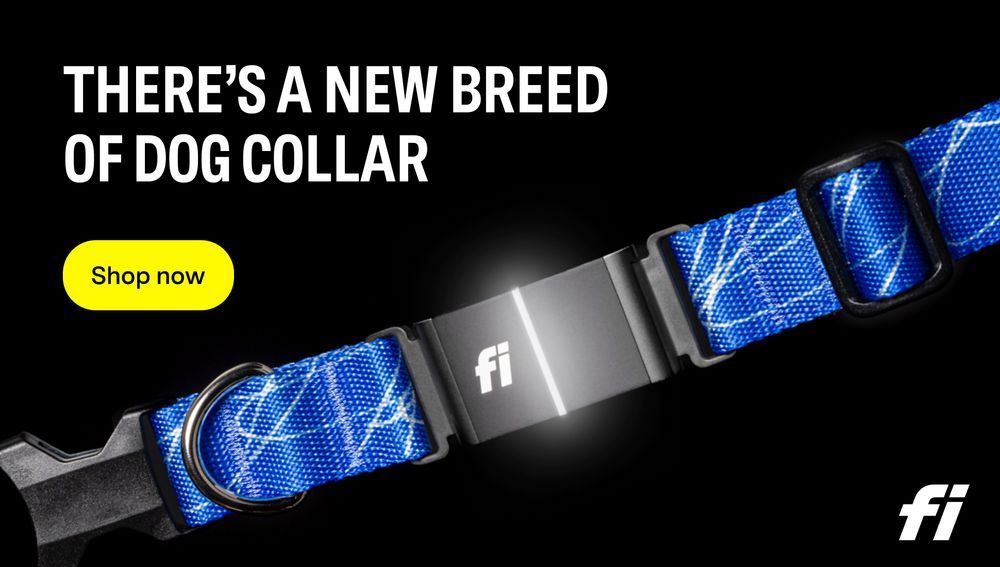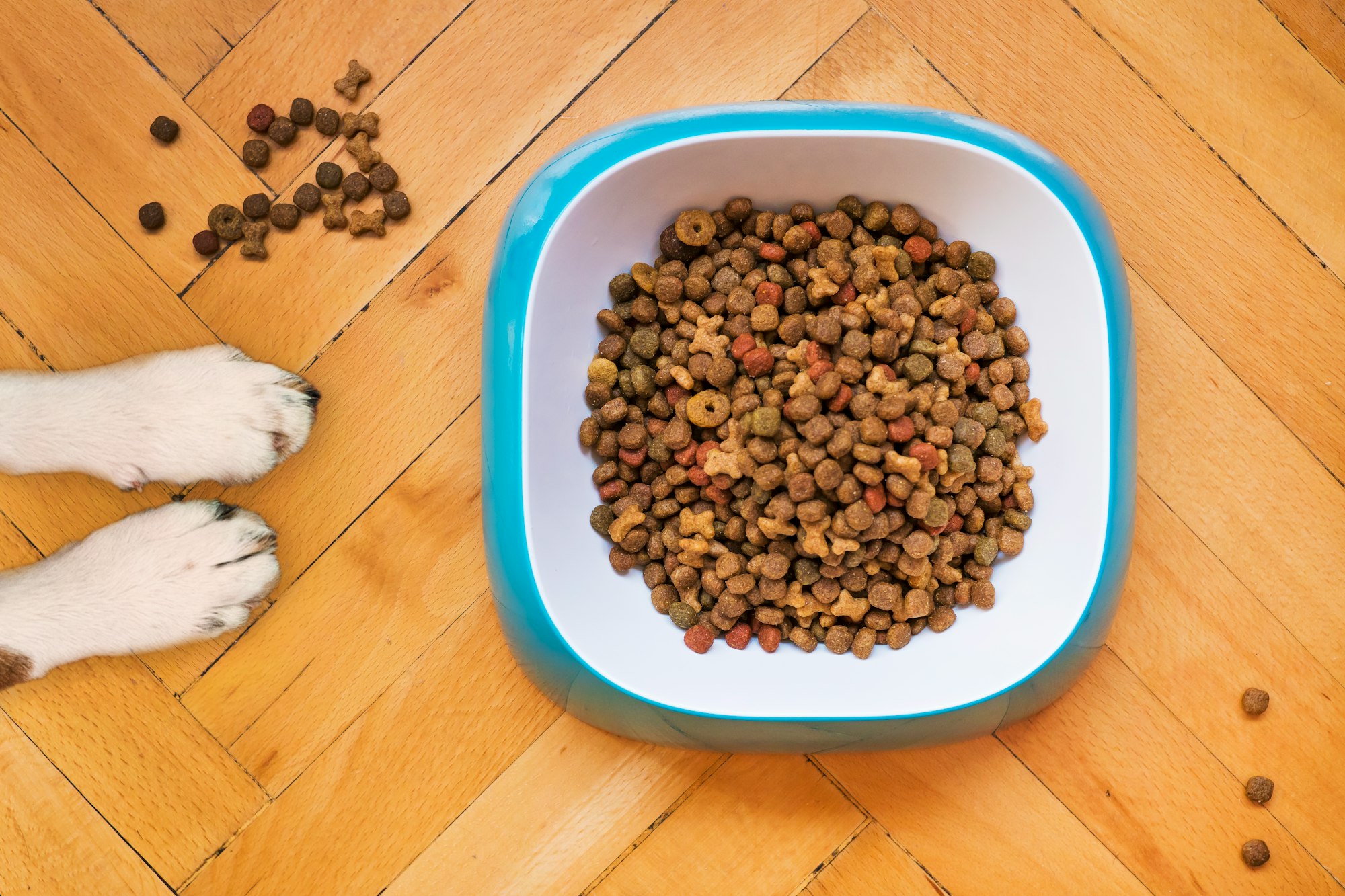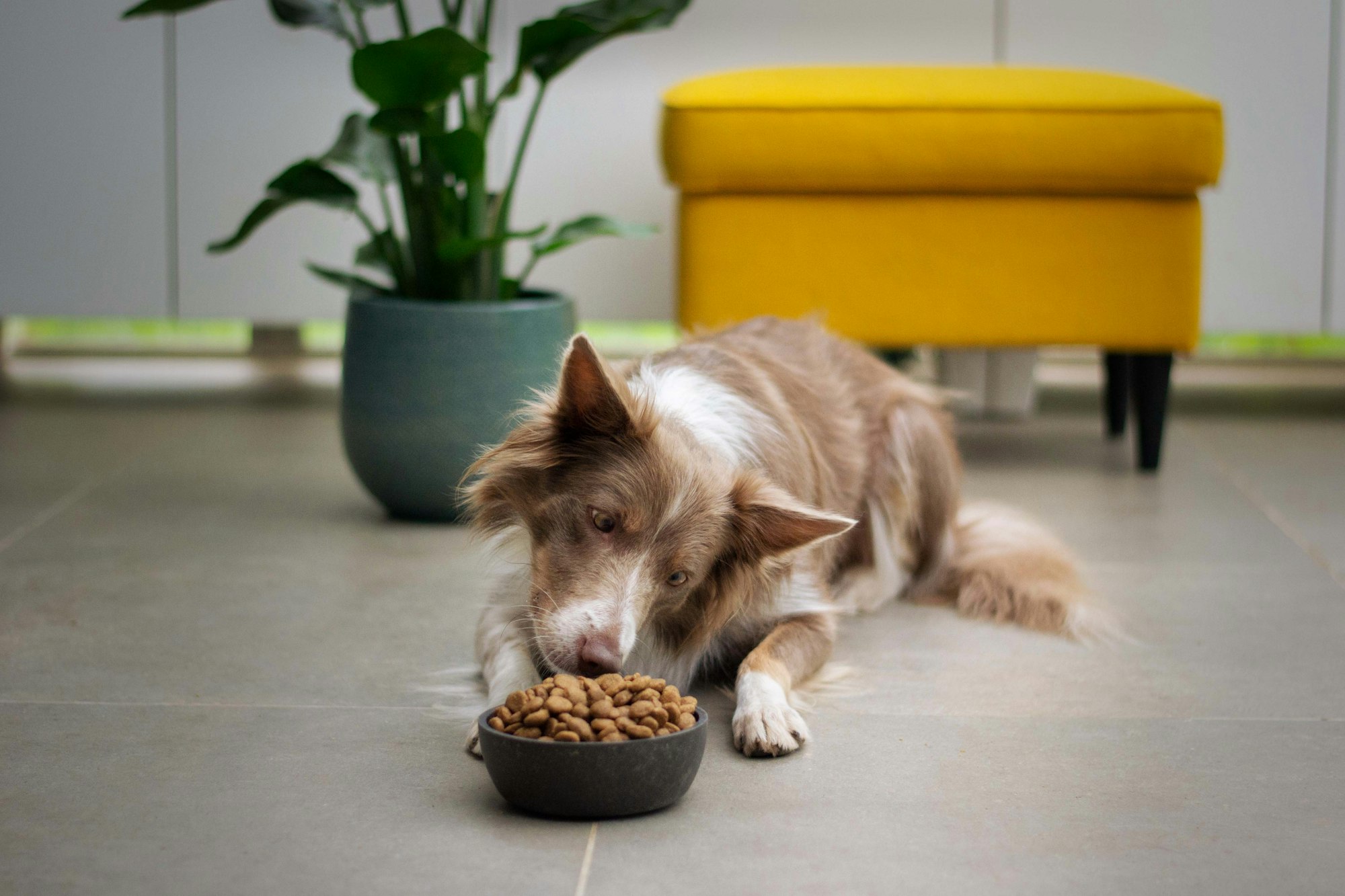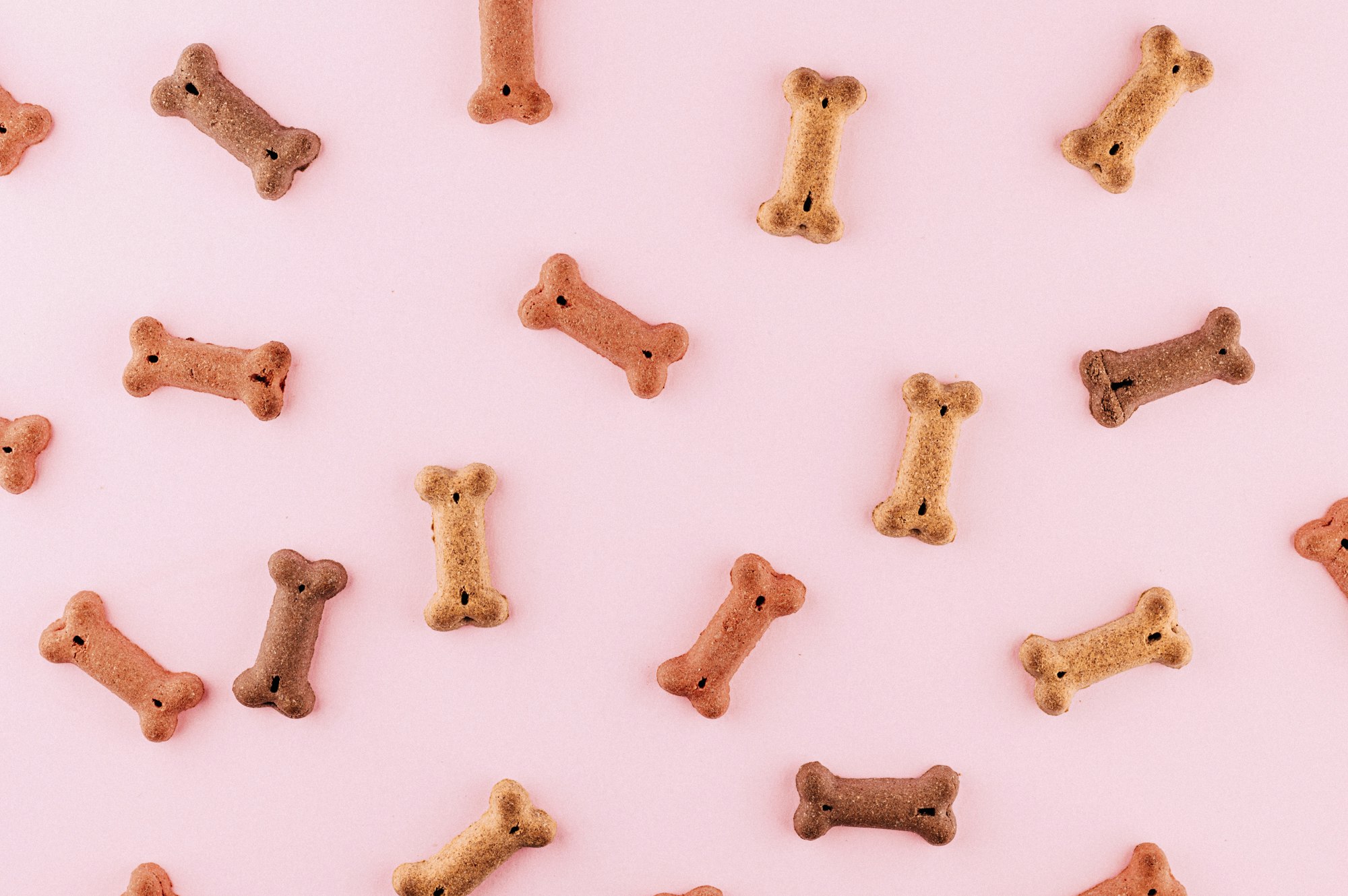Choosing the right dog food for weight loss is crucial for your furry friend's well-being. To help your dog achieve and maintain a healthy weight, understanding their nutritional requirements is key. By implementing a proper diet tailored for weight loss, you can manage calorie intake and promote a healthier lifestyle. So, what is the best dog food for weight loss? Let's find out.
To choose the best dog food for weight loss, you need to be aware of the key ingredients to look for. High-quality, lean sources of protein are important, as they help dogs feel full and support muscle development while promoting weight loss. Fiber-rich ingredients like fruits, vegetables, and whole grains aid in digestion and provide a feeling of satiety.
On the other hand, there are certain ingredients that should be avoided in weight-loss dog food. These include excessive carbohydrates, fillers, and artificial additives, as they can contribute to weight gain and have a negative impact on overall health.
There are various types of dog food options available for weight loss, and understanding them can help you make an informed decision. High-protein dog food, low-calorie dog food, grain-free dog food, and weight management formulas are popular choices that cater specifically to weight loss needs.
When selecting weight-loss dog food, consult your vet for personalized advice. Consider your dog's breed, age, activity level, and allergies. Read labels and understand pet food regulations to ensure quality. Prioritize a balanced diet and incorporate exercise for a healthier, happier dog. Consider your dog's overall health and lifestyle for successful weight loss. Regular exercise, portion control, and close monitoring are key to achieving desired results.
By choosing the best dog food for weight loss and implementing a holistic approach, you can help your dog achieve a healthier weight and improve their overall quality of life.

Key takeaways:
- Choosing the right dog food is crucial for weight loss: Nutritional requirements and ingredient selection play a significant role in helping dogs lose weight effectively.
- Key ingredients for weight loss dog food: Look for high-protein content and low-calorie formulas. Avoid excessive carbohydrates and fillers that can hinder weight loss efforts.
- Consult with a veterinarian and consider your dog's specific needs: Breed, size, and health conditions should be taken into account when selecting the best dog food for weight loss.
Why is Choosing the Right Dog Food Important for Weight Loss?
Choosing the right dog food is crucial for weight loss due to its impact on the dog's overall health and nutrition. It is important to understand why choosing the right dog food is important for weight loss. A balanced and tailored diet helps control calories, manage portion sizes, and reduce excess weight. In this way, the dog's weight loss journey can be successful.
High-quality weight loss dog foods are formulated with lower calorie content, increased fiber, and essential nutrients to support weight management. These foods play a significant role in helping the dog shed those extra pounds. They not only help in weight reduction but also help maintain muscle mass and provide a feeling of fullness. Therefore, choosing the right dog food is essential for a successful weight loss plan.
If you are looking for recommended weight loss dog food brands, Hill's Science Diet Perfect Weight and Royal Canin Satiety Support are good options to consider. Always consult with a veterinarian to determine the best option for your dog's specific needs. They can provide personalized advice on selecting the right dog food for weight loss.
Understanding Nutritional Requirements for Weight Loss in Dogs
When it comes to understanding the nutritional requirements for weight loss in dogs, consider the following guidelines:
- Calorie control: Choose a dog food specifically formulated for weight loss, with fewer calories per serving.
- High-quality protein: Ensure the food provides adequate protein to maintain muscle mass while reducing fat.
- Fiber: Look for fiber-rich ingredients like sweet potatoes or brown rice to help your dog feel full.
- Healthy fats: Opt for dog foods that contain omega-3 fatty acids for a healthy coat and joint support.
- Portion control: Measure your dog's food accurately and avoid overfeeding.
Pro-tip: Consult with your veterinarian to create a personalized weight loss plan for your dog.

What are the Key Ingredients to Look for in Weight Loss Dog Food?
When seeking the best dog food for weight loss and considering your furry friend's overall well-being, certain key ingredients should be a priority. Here are essential ingredients to keep in mind when selecting weight-loss dog food, along with the focus keywords: "What is the best dog food for weight loss."
- Lean Proteins: Look for high-quality sources of protein such as chicken, turkey, or fish. These proteins help to build and maintain lean muscle mass.
- Fiber: Incorporate ingredients like brown rice, sweet potatoes, or pumpkin, which are high in fiber. Fiber aids in digestion and helps your dog feel satisfied.
- Healthy Fats: Choose dog foods that contain moderate levels of healthy fats like salmon oil or flaxseed. These fats provide essential fatty acids and help maintain a healthy coat and skin.
- Complex Carbohydrates: Opt for whole grains like oatmeal or barley, which provide sustainable energy and help regulate blood sugar levels.
- Avoid Fillers: Avoid dog foods that contain fillers like corn, wheat, or soy, as they provide little nutritional value and can contribute to weight gain.
By selecting weight-loss dog food with these key ingredients, you can help your dog reach and maintain a healthy weight while supporting their overall health and well-being. Remember to consult with your veterinarian to determine the best diet plan for your dog's specific needs.
What Ingredients Should be Avoided in Weight Loss Dog Food?
When choosing weight-loss dog food, it's important to avoid certain ingredients that could hinder your dog's progress. Here are some ingredients that should be avoided: What Ingredients Should be Avoided in Weight Loss Dog Food?
- Artificial additives and preservatives can be harmful to your dog's health and provide little nutritional value.
- High levels of carbohydrates can contribute to weight gain and prevent weight loss.
- Fillers like corn, wheat, and soy are often used as fillers and can lead to weight gain, allergies, and digestive issues.
- Sugar and sweeteners add unnecessary calories to your dog's diet and negatively impact their weight loss efforts.
- Avoid dog foods that contain high levels of unhealthy fats, such as excessive amounts of animal fat or vegetable oil.
Popular Types of Dog Food for Weight Loss
When it comes to weight loss, there are several popular types of dog food to consider:
- High-Protein Dog Food: Helps maintain muscle mass while promoting weight loss, such as Blue Buffalo Wilderness High Protein Dry Dog Food.
- Low-Calorie Dog Food: Designed specifically for weight loss, like Hill's Science Diet Light Dog Food.
- Grain-Free Dog Food: May be a good option for dogs with grain sensitivities, such as Merrick Grain-Free Healthy Weight Recipe.
- Weight Management Formulas: Specifically formulated to support weight loss, like Royal Canin Veterinary Diet Satiety Support Dry Dog Food.
Each type of dog food has its own benefits, so it's important to consult with your veterinarian to determine the best option for your dog's specific needs and health goals.
In a study conducted by a leading veterinary nutritionist, it was found that dogs who were fed a high-protein, low-calorie diet lost more weight and maintained muscle mass compared to those on traditional weight loss diets. This highlights the importance of choosing the right type of dog food for successful weight loss.

High-Protein Dog Food
Including high-protein dog food in a weight-loss plan for dogs can have several benefits.
- Increased satiety: Incorporating high-protein dog food in a weight loss plan can naturally help dogs feel fuller for longer, reducing the urge to overeat.
- Promotes lean muscle mass: Protein is an essential component for building and maintaining muscle. By including high-protein dog food in a weight loss plan, you can naturally promote the preservation of lean muscle mass during the weight loss process.
- Boosts metabolism: The high protein content in dog food requires more energy to digest, which leads to a higher metabolic rate and increased calorie burn.
- Aids in weight loss: By including high-protein dog food in a weight loss plan, you can naturally aid dogs in shedding excess pounds by promoting fat loss while preserving muscle mass.
- Supports overall health: Protein plays a crucial role in various bodily functions, including immune system function, tissue repair, and hormone production. By incorporating high-protein dog food into a weight loss plan, you can naturally support your dog's overall health.
When choosing high-protein dog food, look for options that contain high-quality animal protein sources such as chicken, turkey, or fish. It's essential to consult with a veterinarian to determine the appropriate protein level for your dog's specific needs.
Low-Calorie Dog Food
Choosing low-calorie dog food is an effective strategy for helping your dog achieve weight loss. Here are some key benefits and considerations when selecting low-calorie dog food:
Weight management: Low-calorie dog food helps control calorie intake and promotes weight loss, especially when combined with an exercise regimen.
Nutritional balance: Look for low-calorie dog foods that still provide essential nutrients, like protein, vitamins, and minerals, to support your dog's overall health.
Fiber content: High-fiber low-calorie dog food can help your dog feel full and satisfied while consuming fewer calories.
Grain-free options: Some low-calorie dog foods are grain-free, which can be beneficial for dogs with grain sensitivities or allergies.
Consult your veterinarian: Before switching to a low-calorie dog food, consult with your veterinarian to ensure it is appropriate for your dog's specific needs and health conditions.
True story: One dog owner switched her overweight Labrador to high-quality, low-calorie dog food high-quality and combined it with regular exercise. Over several months, the Labrador successfully shed the excess weight and experienced improved energy levels and overall health.

Grain-Free Dog Food
Grain-free dog food, which has become increasingly popular for dogs with grain allergies, and sensitivities, or for owners who prefer to feed their dogs a grain-free diet, offers several important considerations. When selecting grain-free dog food, it is essential to keep the following factors in mind:
Quality ingredients: It is important to opt for brands that utilize high-quality protein sources such as chicken, beef, or fish instead of grains.
Nutritional balance: Ensure that the grain-free formula still provides a balanced diet that includes essential nutrients, promoting your dog's overall health.
Read labels: Take the time to carefully read and comprehend the ingredient list to steer clear of any potentially harmful additives or fillers.
Consult your veterinarian: It is advisable to seek advice from your vet to determine if grain-free food is the right choice for your dog's specific needs.
Transition gradually: When transitioning your dog to grain-free food, it is crucial to introduce it gradually to avoid any digestive upset.
Remember, grain-free dog food can be a suitable option for dogs with specific dietary requirements.
Weight Management Formulas
Weight management formulas are a highly sought-after type of dog food specially crafted to assist dogs in achieving or maintaining an optimal weight. These formulas are tailored with specific ingredients and nutrient profiles that effectively aid weight loss and promote a lean body condition. Here are some significant aspects to consider:
- Reduced calorie content: Weight management formulas are typically formulated with a lower calorie content compared to regular dog food, ensuring a controlled intake of calories.
- Increased fiber content: These formulas incorporate a higher fiber content, which helps dogs feel full and satisfied with consuming fewer calories.
- Optimal protein levels: Weight management formulas often boast higher protein levels to support muscle maintenance and promote satiety, keeping dogs satisfied for longer periods.
- Added L-carnitine: With the inclusion of L-carnitine, these formulas actively support metabolism and facilitate the conversion of fat into energy.
When selecting a weight management formula for your dog, it is essential to consult with your veterinarian to ensure it aligns with your dog's specific needs and health condition.
Considerations Before Choosing Weight Loss Dog Food
When it comes to finding the best dog food for weight loss, several crucial factors come into play. In this section, we'll delve into these essential considerations, helping you make an informed decision for your furry companion. From consulting with your veterinarian to tailoring the diet to your dog's breed-specific needs, we'll provide comprehensive guidance. Additionally, we'll emphasize the significance of scrutinizing labels and comprehending pet food regulations. Please find our focus keywords here: "What is the best dog food for weight loss?
Consulting Your Veterinarian
Consulting your veterinarian is crucial when selecting the appropriate dog food for weight loss. Your veterinarian can offer expert advice based on your dog's specific requirements, health conditions, and dietary limitations. They can advise on suitable portion sizes and calorie intake, as well as suggest particular brands or formulas tailored to your dog's weight loss objectives. Additionally, they can closely monitor your dog's progress and make any necessary adjustments to their diet. It's important to remember that your veterinarian's expertise plays a vital role in ensuring the health and well-being of your beloved pet throughout their weight loss journey.
Pro Tip: Regular communication with your veterinarian is essential for successful weight management for your dog.
Your Dog's Breed and Specific Needs
When choosing the right dog food for weight loss, it's important to consider your dog's breed and specific needs. Different breeds have different nutritional requirements and may be more prone to certain health issues related to weight gain. Here are some factors to consider:
- Size of your dog's breed and specific needs: Larger breeds may require lower calorie intake compared to smaller breeds.
- Activity level: More active breeds may need higher protein and energy levels in their diet.
- Health conditions: Certain breeds may be prone to certain health conditions that require specific dietary considerations, such as joint issues or allergies.
- Age: Puppies and senior dogs have different nutritional needs compared to adult dogs.
Reading Labels and Understanding Pet Food Regulations
When choosing the right dog food for weight loss, it is crucial to thoroughly read labels and comprehend pet food regulations. It is essential to have the knowledge to interpret the information on the packaging, ensuring that you are making the optimal choice for your dog's well-being. Key indicators to look for include the guaranteed analysis, ingredient list, and feeding guidelines. To make informed decisions, it is important to familiarize yourself with pet food regulations and understand the permissible claims and their significance. By following these guidelines, you can select a high-quality dog food that effectively supports your dog's weight loss journey.
Fun Fact: Were you aware that pet food manufacturers must adhere to specific guidelines and regulations established by organizations like the Association of American Feed Control Officials (AAFCO) to guarantee the safety and nutritional adequacy of their products?

Tips for Successful Weight Loss in Dogs
When it comes to helping our furry friends shed those extra pounds, successful weight loss in dogs requires some key tips and strategies. In this section, we'll uncover the secrets to achieving a healthier weight for your canine companion. From getting them moving with physical activity, to closely monitoring their body condition and weight, we'll explore the various approaches to ensure effective weight management. With a mix of proactive measures and proper nutrition, we'll guide you towards a happier and healthier dog.
Physical Activity
Physical activity plays a crucial role in your dog's weight loss journey and overall well-being. Prioritizing exercise is essential for successful weight management. Here are effective ways to incorporate physical activity into your dog's routine. But first, let's explore what is the best dog food for weight loss to complement their fitness plan.
- Regular walks: Taking your dog for daily walks is an excellent way to increase their exercise levels and help them shed extra pounds.
- Playtime: Engaging in active play sessions with your dog, such as playing fetch or engaging in a game of tug-of-war, is not only fun but also promotes physical activity.
- Outdoor adventures: Treat your dog to exciting outdoor activities like hiking or swimming. These activities provide a variety of physical movements and help them burn calories effectively.
- Agility training: Enrolling your dog in agility classes can significantly improve their agility while also serving as a great workout to burn calories.
- Obstacle courses: Challenge your dog physically and mentally by setting up obstacle courses in your own backyard. This is a fun way to keep them active and engaged.
Feeding Instructions
Feeding instructions are essential for achieving successful weight loss in dogs. To ensure effective weight loss, follow these important steps:
- Portion control: Properly measure the recommended amount of food based on your dog's weight and activity level.
- Feeding schedule: Divide the daily portion into two or three meals to prevent overeating and aid digestion.
- Avoid free-feeding: Instead of leaving food out all day, provide meals at specific times to regulate calorie intake.
- Follow the manufacturer's guidelines: Read and understand the feeding instructions on the dog food packaging to determine the correct portion sizes.
- Avoid table scraps or treats: Do not give your dog additional food or treats, as these can hinder their weight loss progress.
- Monitor weight and body condition: Regularly assess your dog's weight to track their progress and make any necessary adjustments to their feeding plan.
- Consult your veterinarian: Collaborate with your vet to develop a customized feeding plan that meets your dog's specific needs and supports their weight loss goals.
Proactive Approach
Taking a proactive approach is crucial when it comes to achieving weight loss in dogs. Here are some strategies to consider:
| 1. Regular exercise: Engage your dog in activities like brisk walks, jogging, or playing fetch to burn off calories and promote weight loss. |
| 2. Portion control: Measure your dog's food portions carefully to avoid overfeeding. Consult your veterinarian to determine the appropriate serving size. |
| 3. Feeding instructions: Follow the recommended feeding instructions provided by the weight loss dog food. This ensures that your dog receives the right amount of nutrients without excessive calories. |
| 4. Monitoring: Keep a close eye on your dog's body condition and weight. Regularly weigh your dog and assess their physical appearance to track progress and make adjustments if needed. |
| 5. Regular veterinary check-ups: Schedule regular visits to the veterinarian to monitor your dog's health and get professional advice on their weight loss journey. |
By incorporating a proactive approach and combining it with a balanced diet and exercise, you are more likely to achieve successful weight loss for your dog.
Extra Padding and Health Problems
Extra padding in dogs can lead to various health problems that can impact their overall well-being. Here are some important considerations when it comes to this issue:
- Excess weight puts stress on the joints, increasing the risk of arthritis and mobility issues.
- Dogs with extra padding are more prone to cardiovascular problems and high blood pressure.
- Obese dogs may have difficulty breathing and may suffer from respiratory issues.
- Extra weight can lead to diabetes in dogs, requiring additional medical management.
- Dogs with excess padding may also experience decreased stamina and energy levels.
- Skin problems, such as infections or irritations, are more common in dogs with extra fat.
- Extra padding can make it challenging for dogs to regulate their body temperature properly.
Taking steps to address and manage extra padding in dogs is crucial to prevent these health problems and improve their overall quality of life.
Monitoring Body Condition and Body Weight
To effectively monitor body condition and body weight in dogs, it is important to follow these steps:
- Regular weigh-ins: Make sure to regularly weigh your dog to keep track of their weight progress and make any necessary adjustments if needed.
- Body condition scoring: Utilize a body condition scoring system, such as the 1-9 scale, to assess your dog's body fat and muscle condition.
- Visual assessment: Conduct a visual inspection of your dog's waist, ribs, and overall body shape to determine whether they are at a healthy weight.
- Monitoring food intake: Keep a record of the amount of food your dog consumes each day in order to ensure appropriate portion control.
- Exercise routine: Establish a regular exercise routine and closely monitor your dog's activity level to help maintain a healthy weight.
- Veterinary check-ups: Regularly schedule veterinary check-ups to discuss your dog's weight, receive guidance, and identify any potential health issues.
Regular Veterinary Check-ups
Regular veterinary check-ups are essential when it comes to managing a dog's weight loss journey. It is crucial to establish a schedule and set up regular appointments with a veterinarian to monitor your dog's progress and make necessary adjustments to their weight loss plan. During these check-ups, the vet will assess your dog's overall health, including body condition, muscle mass, and any underlying health issues that may impact their weight loss. Additionally, the veterinarian can provide expert advice on the best diet and feeding strategies for your dog's weight loss, ensuring they receive proper nutrition while shedding pounds. Vets can also recommend suitable exercise routines and activity levels to help your dog burn calories and maintain muscle tone. In some cases, they may even suggest supplements like omega-3 fatty acids for joint health or appetite suppressants to support your dog's weight loss journey.
Remember, regular veterinary check-ups are crucial for monitoring your dog's progress, addressing any health concerns, and ensuring they stay on the right track to achieve their weight loss goals.

Lean Proteins and Healthy Carbohydrates
When selecting the optimal dog food for weight loss, it's essential to prioritize lean proteins and healthy carbohydrates. These ingredients not only supply vital nutrients but also assist in maintaining a healthy weight for your dog.
- Lean proteins: Seek dog foods that include premium proteins, such as chicken, turkey, or fish. These proteins are low in fat and provide the necessary amino acids to promote muscle development.
- Healthy carbohydrates: Choose dog foods that incorporate carbohydrates sourced from brown rice, sweet potatoes, or quinoa. These complex carbohydrates supply energy and contribute to regulating blood sugar levels.
Avoiding Table Scraps and Treats
Avoiding table scraps and treats is crucial for successful weight loss in dogs. These high-calorie foods can easily sabotage their progress. Here are some guidelines to follow:
- Stick to a strict feeding schedule with controlled portion sizes
- Replace treats with healthier alternatives like carrots or green beans
- Avoid giving in to begging behavior by staying consistent
- Train your dog to earn rewards through non-food methods like praise or play
- Keep your dog engaged with toys or interactive feeders to prevent boredom eating
True story: My friend's overweight Labradoodle was struggling to shed pounds. By cutting out table scraps and treats and following these tips, he lost weight gradually and now enjoys a happier, healthier life.
Wet Food vs. Dry Food
- When considering the pros and cons of wet food versus dry food for weight loss in dogs, there are several factors to take into account.
- Moisture content: Wet food, in comparison to dry food, typically contains higher moisture levels. This increased moisture can help dogs feel more satisfied and reduce their overall calorie intake.
- Digestibility: Dogs generally find dry food easier to digest, making it a suitable choice for those with sensitive stomachs.
- Calorie density: Dry food tends to have a higher calorie density than wet food. Therefore, it is crucial to practice portion control to prevent overfeeding.
- Dental health: The crunchy texture of dry food can aid in promoting better dental health by minimizing the buildup of plaque and tartar.
- Convenience: For pet owners on the go, wet food is available in pre-portioned cans or pouches, offering convenience and ease of use.
- Budget: When it comes to cost-effectiveness, dry food usually proves to be more economical, especially for larger dogs or those on long-term weight loss plans.
| Moisture content | Wet food, in comparison to dry food, typically contains higher moisture levels. This increased moisture can help dogs feel more satisfied and reduce their overall calorie intake. |
| Digestibility | Dogs generally find dry food easier to digest, making it a suitable choice for those with sensitive stomachs. |
| Calorie density | Dry food tends to have a higher calorie density than wet food. Therefore, it is crucial to practice portion control to prevent overfeeding. |
| Dental health | The crunchy texture of dry food can aid in promoting better dental health by minimizing the buildup of plaque and tartar. |
| Convenience | For pet owners on the go, wet food is available in pre-portioned cans or pouches, offering convenience and ease of use. |
| Budget | When it comes to cost-effectiveness, dry food usually proves to be more economical, especially for larger dogs or those on long-term weight loss plans. |
Properly Managing Weight of Large Breed Dogs
Properly managing the weight of large-bridge breed dogs is crucial for their overall health and well-being. Here are some steps to help you in this process:
- Consult your veterinarian: Seek professional guidance to determine the ideal weight for your dog and develop a weight loss plan.
- Portion control: Measure your dog's food accurately and avoid overfeeding.
- Incorporate physical activity: Engage your dog in regular exercise such as daily walks or playtime.
- Avoid table scraps and treats: These can contribute to weight gain, so opt for healthy, low-calorie alternatives.
- Monitor body condition and weight: Keep track of your dog's progress by regularly assessing their body condition and weight.
- Regular veterinary check-ups: Schedule routine check-ups to ensure any underlying health issues are addressed.
- Include lean proteins and healthy carbohydrates: Choose dog food formulas that provide the right balance of nutrients for weight management.
- Consider wet food vs. dry food: Discuss with your veterinarian which type of food is best suited for your dog's weight loss goals.
- Properly manage the weight of large breed dogs: Pay attention to the specific requirements, such as joint support, when choosing weight loss dog food.
By following these steps, you can effectively manage the weight of your large breed dog and promote their overall health and longevity.
Some Facts About the Best Dog Food for Weight Loss:
- ✅ Over 59% of dogs are overweight, according to the Association for Pet Obesity Prevention.
- ✅ Excess weight can shorten a dog's lifespan by up to 2.5 years.
- ✅ Overweight dogs are 3 times more likely to be diagnosed with diabetes and can develop heart disease and osteoarthritis.
- ✅ Choosing the right dog food is important for successful weight loss and long-term health.
- ✅ The best weight management dog foods have more fiber and fewer carbohydrates and fats.




